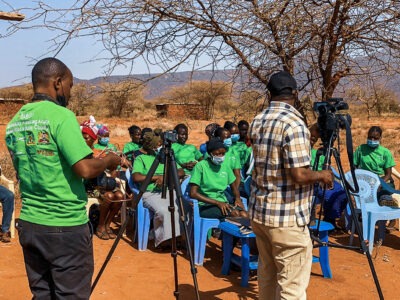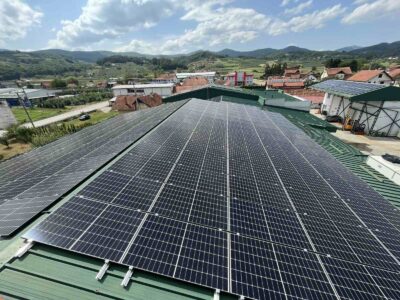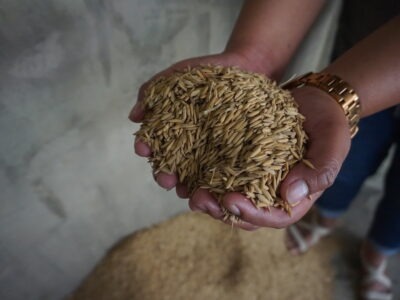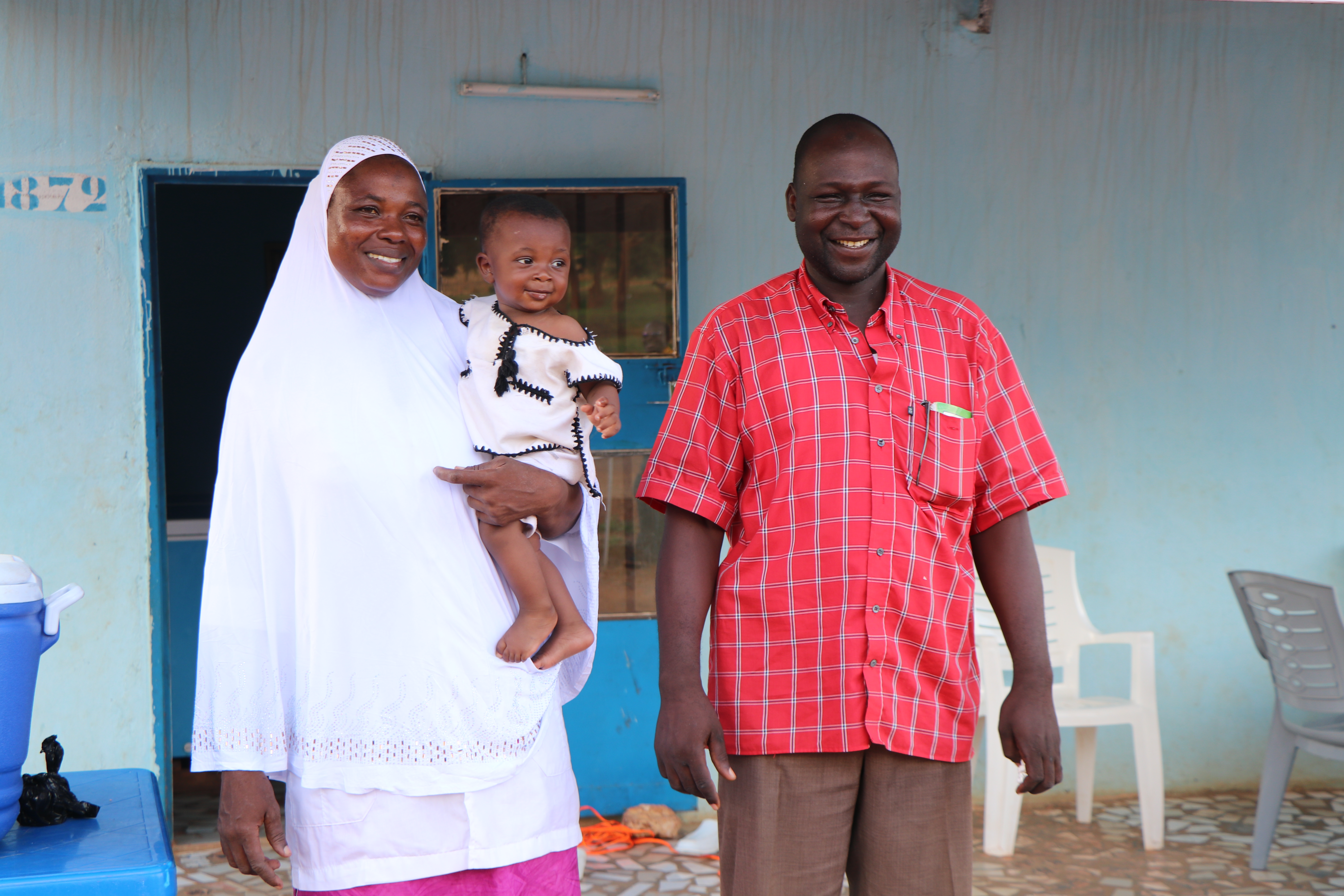
In central-northern Burkina Faso in the city of Kaya, fresh milk is not always available. Because of low investment in milk production, demand in both rural and urban areas is high, and most of that demand is met through imported milk products. As an employee at a local dairy processing association, Abibou Ouedraogo saw some of the reasons firsthand. She and coworkers had low quality equipment and insufficient knowledge of processing techniques, often resulting in poor-tasting or contaminated products. Even the one liter of milk that Abibou was able to generate was often turned away by stores when she tried to sell it, and her income suffered. Fortunately, Abibou’s husband, Daouda, heard about the Victory Against Malnutrition (ViM) project on the radio. ViM was accepting applications for microenterprise support; Abibou applied and was accepted.
Funded by USAID’s Office of Food for Peace and implemented by ACDI/VOCA, ViM is reducing food insecurity by increasing and diversifying farmers’ production and improving rural entrepreneur incomes, household health, and nutrition.
ViM provided key elements for Abibou to obtain the beginnings of her own dairy business: tables, chairs, a freezer, glass bottles, processing equipment, and construction materials. Her husband helped her find and build a new space to set up shop. But it was the training Abibou received that truly set her on the path to success. ViM trained Abibou in marketing, financial reporting and management, sales, and customer relations. The project strives to empower women through promotion of diversified sources of revenues and capacity building.
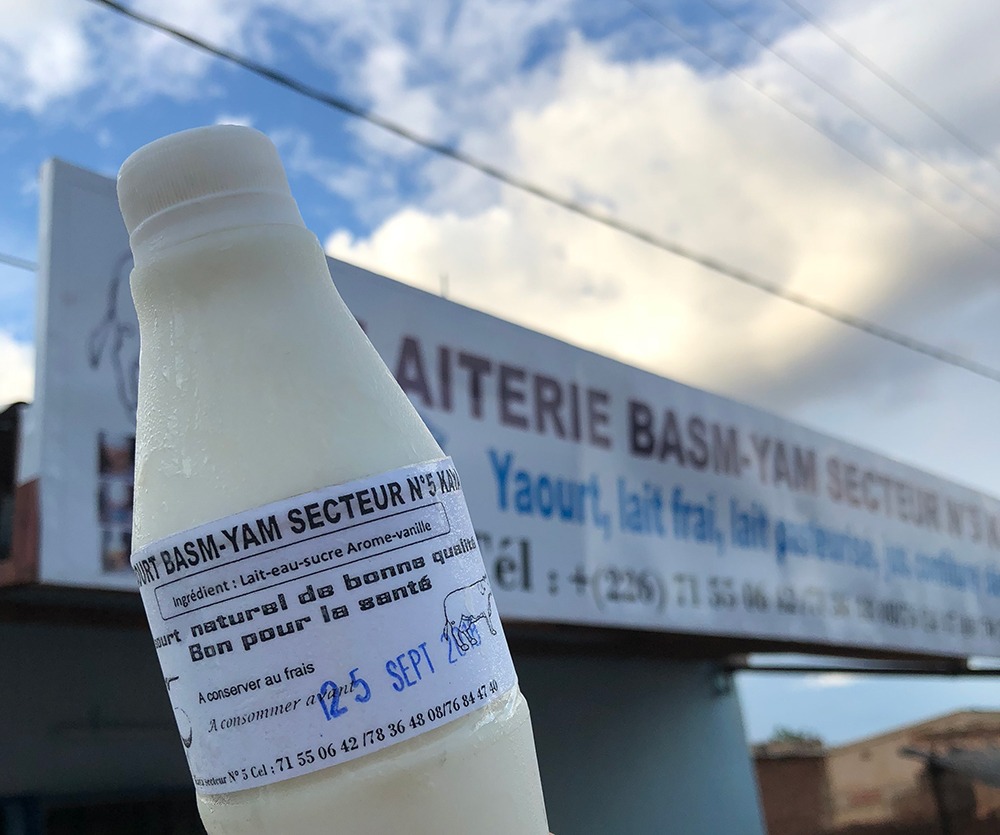
Using her new skills and processing space, Abibou began her dairy business in earnest. By engaging two raw milk suppliers she’d previously worked with, she achieved an average daily milk output of four liters in addition to producing yogurt and degue, a dairy-based dessert made with millet. Abibou now provides samples to local stores and markets, and word of mouth has created a solid client base. Abibou also offers a return guarantee if a customer isn’t satisfied.
“Before ViM, all our family expenses came from me. Now, my wife supports the household with school fees, clothes, food at feast times, and more.” – Daouda Ouedraogo, husband of Abibou, a ViM project participant
Abibou has researched and sampled products from the competition. She is confident in her shop’s quality and happily speaks of her “secret ingredient” that further sets her products apart. She has also spent time with other processors to refine her techniques. Her average monthly profits of USD $330 have afforded preschool fees for her five-year-old son, providing her with more time during the day for business. She also can now supplement her son’s education by paying for private tutoring at their home.
Abibou’s husband said they communicate much better these days, and that all decisions on the dairy business come from his wife. “Our quality of life is much higher now,” Abibou said. She plans to expand into new products, such as baobab juice and sandwiches, and to purchase two cows.

